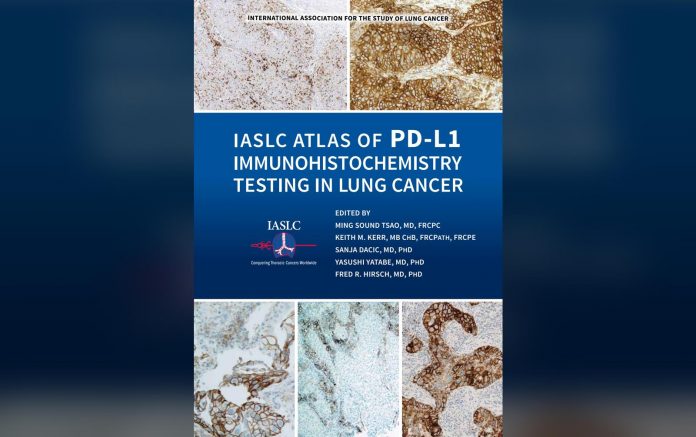Posted: June 2017
Despite very encouraging progress in the development and use of immunotherapy for patients with non-small cell lung cancer, much confusion remains regarding patient selection for each therapy. Programmed cell death ligand-1 (PD-L1) protein expression, as detected by immunohistochemistry (IHC) testing, has been widely used as a predictive biomarker assay for anti-PD-1/PD-L1 therapies. In fact, the PD-L1 IHC 22C3 pharmDx assay for determination of PD-L1 expression is approved by the US FDA for both first-line and second-line therapy with pembrolizumab. However, there is no clear understanding among physicians, thoracic pathologists, and clinical trialists regarding which assay to use for PD-L1 testing, and whether the various assays are interchangeable because each assay was codeveloped with discrete PD-1 and PD-L1 inhibitors. This complex biomarker scenario—the likes of which we have never faced before in lung cancer diagnostics—poses many challenges for pathologists, oncologists, and patients.
The International Association for the Study of Lung Cancer (IASLC) has recognized the importance and timeliness of this topic and convened an expert panel of authors to present current information about the emerging PD-L1 IHC assays, as well as to highlight both areas of clarity and debate. The newly published IASLC Atlas of PD-L1 Immunohistochemistry Testing in Lung Cancer is the result. The authors of this text have approached this topic with a wider lens, looking at the changing landscape of laboratory testing in general, as well as detailing the specifics of each assay and the current controversies regarding PD-L1 expression testing in lung cancer. Although this Atlas primarily aims to be a guide or resource for physicians and others involved in lung cancer diagnosis and treatment, it is the hope of the authors that this text will eventually give patients a more comprehensive understanding of the current biomarker scenario. Ultimately, we believe that through the creation of this Atlas, patients with lung cancer will receive the most state-of-the-art treatment options, based on up-todate evidence, and will feel more confident and knowledgeable regarding their therapy.
—Editor Ming Sound Tsao, MD, FRCPC
➲ Readers can obtain a copy of the IASLC Atlas of PD-L1 Immunohistochemistry Testing in Lung Cancer online.











